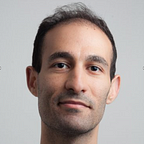Why Fake News Is Candy to Our Brains
Memory bias causes people to hold on to the (true and untrue) stories we like
 Human memory is notoriously fallible. Experiments by Elizabeth Loftus in the 1970s demonstrated this particularly well. Loftus asked people to watch videos of car accidents and then answer a simple question: “About how fast were the cars going when they hit each other?” The question was simple but people’s responses depended entirely on how the question was phrased. They would estimate a faster speed if asked how fast the cars “smashed into” each other than if asked how fast the cars “bumped into” or “hit” each other, even though the videos themselves were identical.
Human memory is notoriously fallible. Experiments by Elizabeth Loftus in the 1970s demonstrated this particularly well. Loftus asked people to watch videos of car accidents and then answer a simple question: “About how fast were the cars going when they hit each other?” The question was simple but people’s responses depended entirely on how the question was phrased. They would estimate a faster speed if asked how fast the cars “smashed into” each other than if asked how fast the cars “bumped into” or “hit” each other, even though the videos themselves were identical.
We can think of this problem as a memory bias. Our memory systems operate more like storytellers than cameras, so language and perspective can dramatically influence what we do and don’t recall. Recently, a group of researchers, including Loftus herself, returned to this issue, and examined it in the context of a major political hot button: fake news.
In the week before the 2018 Irish abortion referendum, a vote on whether to repeal restrictive abortion laws, the researchers recruited over 3000 people in Ireland to look at six short news stories. Four of those stories were true but the remaining two were fake, and the fakes either…
